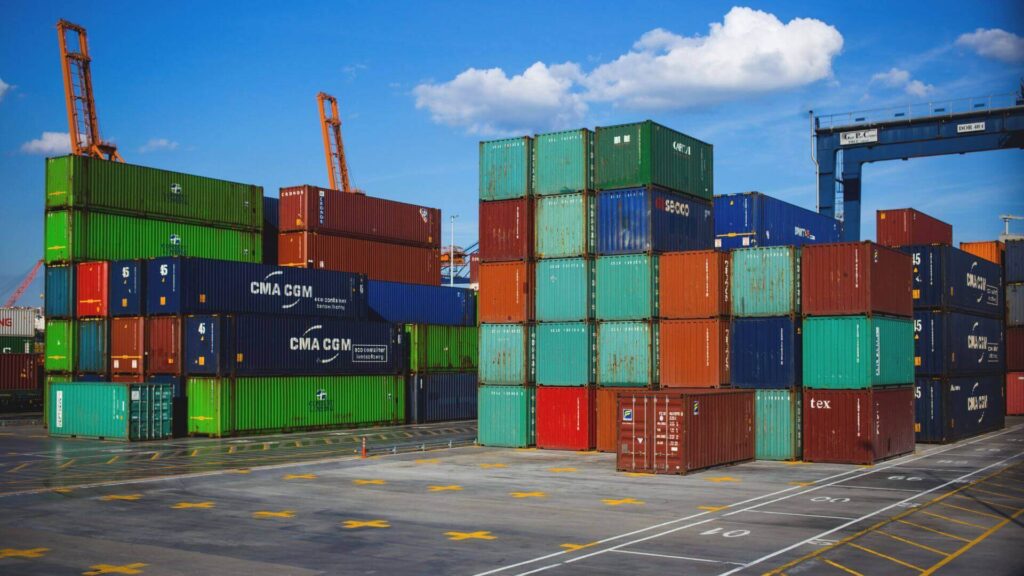Whether a pro or a beginner, in the line of e-commerce and logistics, you need to have a good grasp of the jargon used in the industry. Even though it requires extensive training and experience, we can help you by giving you a quick crash course in the terminology used in the logistics and transportation industry.
With this logistics terminology guide, you can take an in-depth look into some of logistics’ most fundamental terms, so you can have a better understanding of the subject and get to the bottom of “what are the terms used in logistics?”
Supply Chain
The term “supply chain” refers to the interconnected system of businesses, institutions, and processes involved in creating, acquiring, modifying, and distributing products and services. It incorporates several entities and functions into a unified operating system, beginning with the extraction of raw materials and ending with the delivery of finished goods.
Transportation
Moving items from one place to another is what we call transportation when discussing basic logistics terminology. Transport via road, rail, air, and sea plays a role in this cycle. Several factors and variables, including the kind of cargo, the distance to be covered, and the costs, affect the final decision of which transportation you choose.
Warehousing
Warehousing is an essential part of basic logistics terminology because it provides a safe place to temporarily store items before they can be shipped. These facilities can vary in size – they can be as small as a single locker or as massive as a whole center. Warehouses play an important role in the supply chain as a whole, positioning goods for efficient distribution and management of stock.
Inventory Management
Considered an integral part of logistics, inventory management is concerned with the organized and methodical management of a company’s stock. In order to avoid operational inefficiencies and disruption in finances, it is one of the most important aspects to maintain an accurate and up-to-date inventory system.
Shipping
Shipping includes the detailed processes of moving goods from one place to another. It necessitates thorough planning, secure packaging, accurate documentation, and compliance with both domestic and international regulations. This element is vital for the smooth physical transportation of products within the supply chain.
Carrier
In basic logistics terminology, a carrier refers to an entity, which can be an individual or a company, entrusted with the responsibility of offering transportation services. Carriers play a crucial role in transferring goods and materials across the supply chain, which can include local delivery services as well as global shipping corporations.
Freight
This term specifically refers to the goods and commodities that a carrier is tasked with moving. These items can be of a wide variety, such as consumer products, industrial machinery, raw materials, and more. You need to have in-depth knowledge about the nature of the freight so you can handle it accordingly, correctly, and then transport it.
Route Optimization
This is a strategic undertaking that focuses on finding the most efficient route for goods to reach their destination. The goal is to minimize travel time, reduce operational expenses, and lessen the environmental impact, all while making timely deliveries.
Lead Time
This important metric in basic logistics terminology signifies the time passed from when an order is made to when it is delivered. Precise lead time estimation is essential for effectively managing customer expectations, optimizing inventory levels, and coordinating various supply chain activities.
Just-In-Time (JIT)
Just-in-time logistics is a strategy that focuses on delivering goods or materials at the exact time they are needed in the production or distribution process, minimizing the need for excess inventory or storage. The goal of JIT is to streamline operations by ensuring that resources arrive only when required, without any unnecessary waiting times and stockpiling.
Packing and Packaging
These are essential aspects of logistics, involving the detailed preparation of goods for transportation. It includes choosing suitable containers and protective materials to safeguard the products so they arrive in the hands of the customer in perfect condition.
Reverse Logistics
Reverse logistics is a specialized area of logistics focused on handling the return of goods from consumers to the manufacturer or retailer. It covers a range of situations, such as product defects, damage, recalls, or customer returns, requiring meticulous care in handling and decision-making.
Third-Party Logistics (3PL)
Numerous businesses choose to delegate their logistics and supply chain tasks to specialized service providers, known as 3PL companies. These are known to provide a range of services, such as warehousing, transportation, and distribution, so businesses can concentrate on improving their bottom line.
Incoterms
Incoterms are universally accepted terms that outline the responsibilities of both buyers and sellers in the movement of goods across borders. These terms cover critical factors like shipping expenses, risk allocation, and duties, promoting clarity and consistency in international trade dealings.
Cross-Docking
Cross-docking is a logistics tactic aimed at reducing storage time and optimizing the movement of goods. It involves promptly transferring incoming products from arrival vehicles to outbound vehicles with minimal interim storage. This approach lowers handling costs, expedites the distribution process, and is especially beneficial in time-sensitive supply chains.
What Role do these Terms Play?
There are several situations in which knowing and applying basic logistics terminology can be very useful for you. Why is this information so important in the field of logistics? Here is the answer:
Effective Communication
Logistics involves many different parties working together – suppliers, manufacturers, carriers, and customers, to name a few. Using common terminology makes sure that everyone speaks the same language. It reduces confusion, and misunderstandings, and allows for clear and effective communication across the supply chain. For example, when a supplier and a retailer talk about “lead time” or “inventory management,” both of them are on the same page regarding the timing of the order fulfillment process!
Efficient Operations
Efficiency is the heart of successful logistics. Without a shared vocabulary, it becomes challenging to plan, coordinate, and execute the movement of goods. When all parties involved understand terms like “route optimization” or “just-in-time,” it becomes easier to make operations more streamlined and cost-effective.
Accurate Planning
Logistics requires careful planning to ensure that goods reach their destination on time. Terminology like “lead time” is essential for accurate scheduling. If lead times are misunderstood or miscalculated, it can lead to delays, excess inventory, or stockouts, all of which can be costly.
Cost Control
Logistics involves various costs, such as those associated with transportation, storage, and maintaining inventory. When people throughout the supply chain have a shared understanding of terms related to these costs and efficiency measures, it becomes simpler to find ways to save money and make resource allocation more efficient.
Supply Chain Resilience
A resilient supply chain is one that can adjust and recover when unexpected problems arise. Understanding logistics terms helps in creating backup plans and putting strategies in place to reduce risks. This ability to bounce back is crucial in today’s constantly changing and uncertain business world.
Conclusion
Understanding essential logistics terminology is like having a secret code to unlock cost savings and operational efficiency in the world of supply chain management. Whether you’re a logistics professional or someone looking to enhance your understanding of the supply chain, transportation, and international trade, these key terms provide the foundation for success. So, let’s keep the conversation going and continue to understand essential logistics terminology for your brighter future in logistics!
Join forces with Logos Logistics, your dedicated partner in streamlining supply chain excellence to learn all there is to about logistics terminologies. Let’s optimize your operations together – explore the difference today!











